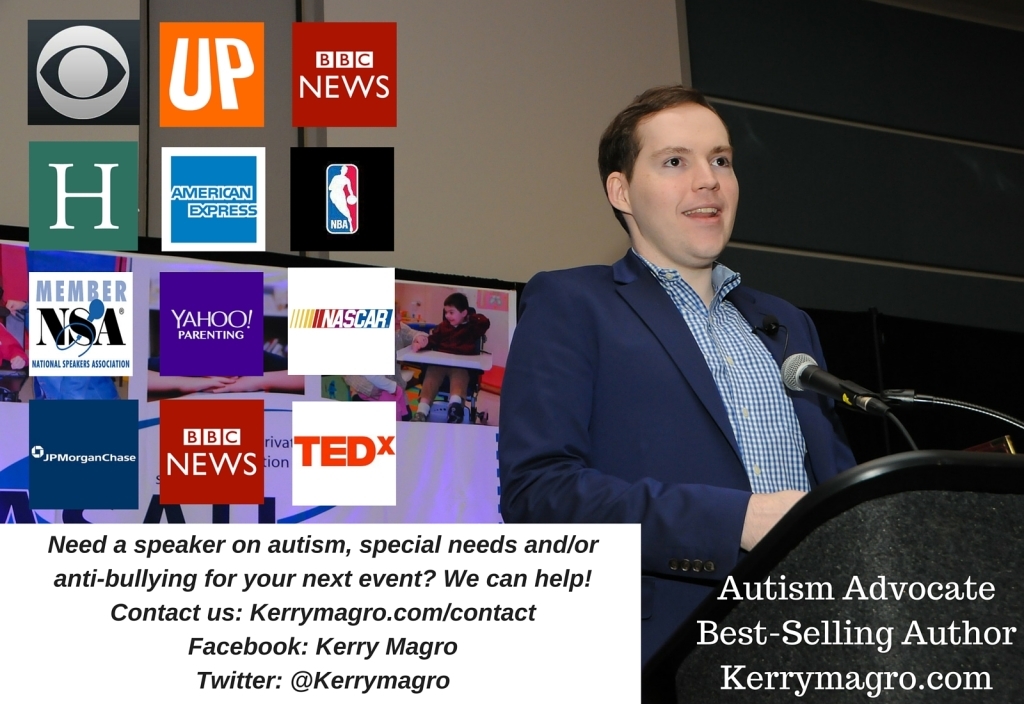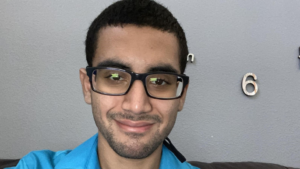This guest post is by Maggie, a woman on the autism spectrum. Maggie is applying for our Summer 2017 Making a Difference Autism Scholarship via the nonprofit KFM Making a Difference. You can read more about the organization and how to apply for our scholarship here.
Ever since I could fully comprehend thought and memory, I had always known that I was autistic. Nearly eighteen years after that fateful diagnosis, I am finally beginning to understand exactly what reclaiming my identity as an autistic female means for me and my future. In high school I started thinking critically about all these ideas that were swarming in my head about autism and its place in the culture around us, and continuing into my education.
I have done independent study and written academic papers regarding various aspects about this subject that interest, infuriate, and fascinate me. This includes the hypocrisies found in neurotypical society – how they publicly preach tolerance and acceptance for the disabled while at the same time restricting their access for government-assisted education and healthcare and subtly advertising that suppressing natural communication instincts and behaviors is necessary for appearing “normal” and therefore successful – as well as the cultural and internalized ableism that can arise from the ways in which autistic characters and traits are misrepresented in the media.
There are various factors that have sparked this intense curiosity and passion; from the time I was diagnosed at age three this unremarkable little label has deeply influenced the way I think, the way I interact with people, and the way in which I understand the universe. I can’t think about autism in any medical or professional sense – terms such as ABA and TSS and IEP all blur together in my mind, only kept alive through academic records and excessive documentation.
My education growing up was relatively normal; sure sometimes I was required to miss class for a mandatory meeting or routine testing with supervisors, and although I am registered with the disability services at my college they have not played a great role in my time there thus far. When I think about autism, it is deeply, even uncomfortably personal.
I remember growing up guarding my autism from my classmates so I wouldn’t be targeted and treated any differently – it’s one thing to just be know as the smart, quiet, maybe slightly weird girl, it’s entirely another to be relegated with the mentally disabled kids that I could always tell my classmates were mostly nice to out of pity. I did my best to fly under the radar for the longest time, and in hindsight I regret hiding my true authentic self so carefully from the harshness that is adolescence and then wondering why I didn’t have any real meaningful friendships. I desired an average teenage existence, but instead I was internally caught between denying my autism and embracing it, never really finding a place within either side.
Since I’ve been at college and gotten myself involved in academics and my on-campus job as a desk receptionist, I’ve found friends that I can be my entire unfiltered self around without judgement. They don’t care about my autism in the same way that I don’t make a huge deal about things such as their political views, mental illnesses, or sexualities; it’s just apart of who we are and there’s nothing to be ashamed of.
In addition, my cousin was recently diagnosed with Asperger’s around the same age that I was, and it’s given me a greater incentive towards becoming a positive influence for him so he can grow up believing someone understands what he’s going through. It breaks my heart every time I’m at a family gathering and I watch this sweet, kind, talented boy trying his best routinely being ignored by the more extroverted members in our family, especially since I understand all too well how damaging it can be to feel disconnected from the people who are supposed to unconditionally love you.
It makes me think about what entails for the next generation; so far it’s been difficult growing up and transitioning into an autistic adult since there aren’t many available resources for that respective phase. I’ve always been interested in the arts and popular culture, and my main aspiration is to become an established and successful behind-the-scenes figurehead in the entertainment industry.
I wrestle internally with the idea of being regarded as a role model at times, as I never want to be purely defined by my diagnosis when I know I am worth so much more than that. At the same time though, I have a chance to push people’s preconceptions past the typical straight white intelligent/analytical, socially awkward portrayal and instead challenge the mainstream to view us not as a tragic life lesson or the butt of the joke, but as authentic human beings.
I can inspire people, particularly the autistic girls who are currently feeling misunderstood and struggling with their identity, and in turn become the representation I felt I never had growing up. I write the word “autistic” down now and it doesn’t scare me anymore So I’ll never be normal. So what?

Kerry Magro, an international speaker and best-selling author started the nonprofit KFM Making a Difference in 2011 to help students with autism receive scholarship aid to pursue a post-secondary education. Help us continue to help students with autism go to college by making a tax-deductible donation to our nonprofit here. Also, consider having Kerry, one of the only professionally accredited speakers on the spectrum in the country, speak at your next event by contacting him here.














